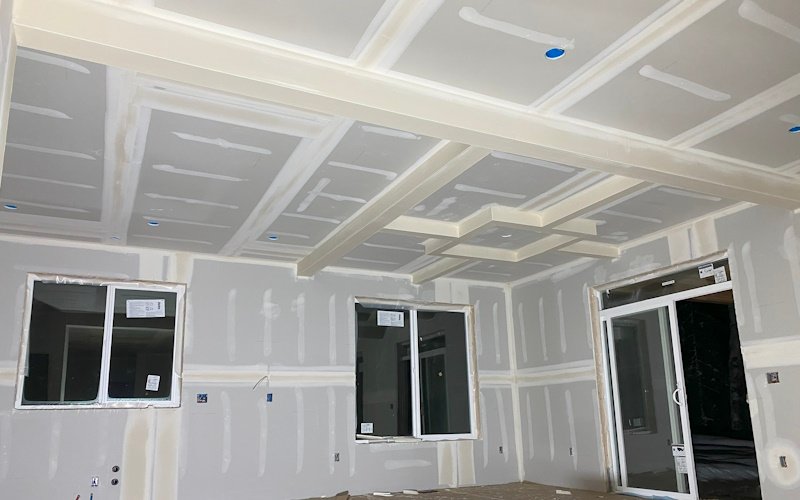Planning a home renovation project can be exciting, but it can also feel overwhelming. Whether you’re remodeling a single room or updating your entire home, having a solid plan in place is crucial to ensuring the project runs smoothly and stays within budget. In this guide, we’ll walk you through the essential steps to help you plan a successful home renovation project.
1. Define Your Goals and Priorities
Before you dive into your home renovation project, it’s essential to clearly define your goals. Ask yourself why you’re renovating. Are you looking to increase the value of your home, enhance functionality, or simply update the aesthetics?
Once you have a clear goal, prioritize your needs. For instance, if you’re renovating for resale value, focus on areas like the kitchen, bathroom, or curb appeal, which tend to offer the highest return on investment. However, if you’re updating your forever home, you might prioritize custom features that suit your lifestyle.
Having a well-defined vision will help guide the entire renovation process and ensure your goals align with your budget and timeline.
2. Set a Realistic Budget
Setting a realistic budget is one of the most critical aspects of planning a home renovation. Without a solid budget, costs can quickly spiral out of control. To avoid this, list out all expected expenses, including materials, labor, permits, and any extra costs that might arise.
It’s also wise to add a buffer of around 10-20% to your budget to cover any unexpected issues or changes that might come up during the renovation. This safety net will help prevent you from going over budget and allow you to adapt to any surprises without too much stress.
Research the costs of materials and labor in your area, and consider getting quotes from multiple contractors to ensure you’re getting the best value for your money.
3. Hire the Right Contractor
Finding the right contractor is key to ensuring a successful home renovation project. A reliable, experienced contractor will help you navigate the project smoothly, from planning to execution.
Before hiring a contractor, do your research. Check reviews, ask for references, and verify that they are licensed and insured. It’s also a good idea to request a portfolio of their previous work to see if their style aligns with your vision.
Once you’ve selected a contractor, make sure to have a clear contract in place. The contract should detail the project timeline, costs, payment schedule, and any warranties offered. Clear communication between you and the contractor will ensure that everyone is on the same page throughout the renovation process.
4. Create a Detailed Timeline
A well-thought-out timeline is crucial for keeping your renovation on track. Work with your contractor to establish a realistic timeline that accounts for each phase of the project, from demolition to finishing touches.
Keep in mind that unexpected delays can happen, especially if you’re dealing with older homes that may have hidden issues. Allow some flexibility in your timeline to account for delays in material deliveries, permit approvals, or weather-related setbacks.
By having a clear timeline, you’ll be better prepared to manage your expectations and ensure that the project moves forward smoothly.
5. Obtain the Necessary Permits
Depending on the scope of your renovation, you may need to obtain permits before starting work. Permit requirements vary based on location and the type of work being done, but they are typically required for structural changes, electrical work, plumbing, and additions.
Skipping the permit process can result in costly fines, delays, and potential legal issues down the road. It can also complicate things when you go to sell your home, as unpermitted work may not pass inspection. Always check with your local building authority or your contractor to ensure you have all the necessary permits before starting your renovation.
6. Plan for Temporary Disruptions
Renovations can cause significant disruptions to your daily life, especially for major projects that involve kitchens, bathrooms, or entire living spaces. It’s important to plan ahead for how you will manage during the renovation.
Consider setting up a temporary kitchen if your main kitchen is being remodeled, or arrange for alternative living arrangements if the renovation will impact multiple rooms. Clear communication with your contractor about the timeline and expected disruptions will help you plan accordingly and reduce the stress during the project.
7. Stay Involved in the Process
Even with a trustworthy contractor, it’s important to stay involved in the renovation process. Regularly check in on the progress, ask questions, and make sure that everything is proceeding according to plan.
While you don’t need to micromanage every detail, staying engaged ensures that any issues can be addressed promptly before they become bigger problems. Plus, being involved allows you to make decisions on the fly if any unexpected challenges or design changes come up.
FAQ
1. How do I determine my renovation budget?
To determine your renovation budget, start by listing all anticipated expenses, including materials, labor, and permits. Research costs for similar projects in your area, and always add a buffer of 10-20% for unexpected expenses.
2. Do I need permits for my home renovation?
Permits are typically required for structural changes, electrical work, plumbing, and additions. Check with your local building authority or ask your contractor to ensure you have the necessary permits before beginning work.
3. How do I choose the right contractor for my renovation?
When choosing a contractor, verify their licenses and insurance, read reviews, ask for references, and view their portfolio. Get quotes from multiple contractors to compare and select the one that best fits your needs and budget.
4. How long does a typical home renovation take?
The timeline for a home renovation depends on the scope of the project. Smaller projects, like bathroom remodels, may take a few weeks, while larger renovations, such as whole-home remodels, can take several months. Always plan for potential delays.
5. What should I do if my renovation goes over budget?
If your renovation goes over budget, assess where you can cut costs without compromising the quality of the work. Communicate with your contractor to see if any adjustments can be made, and use the buffer you’ve set aside for unexpected expenses.
Conclusion
Planning a successful home renovation project requires careful preparation, budgeting, and coordination. By defining your goals, setting a realistic budget, hiring the right contractor, and staying involved throughout the process, you can ensure that your renovation meets your expectations. Keep these tips in mind to make the renovation journey smoother and more enjoyable, resulting in a home that reflects your vision and needs.








